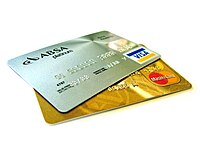OVERVIEW
Mistakes found on your credit report can be avoided by and/or corrected by following some straightforward procedures.
A big part of being fiscally responsible these days is checking on your credit report. Individuals can get a free credit report from each of the major credit reporting bureaus — Equifax, Experian, and TransUnion — every 12 months. Checking your credit report is as simple as having these bureaus send you a copy of your credit report and looking it over. Most of the time, these credit reports are correct. But what do you do if you find a mistake?
Credit Report: Check Each Credit Card Account
When you check over your credit report, you need to check each credit card account. The information on the open accounts should match the information you have in your records at home. Check each credit card, including card numbers, balances, and payment histories. If a discrepancy is found, you should contact your credit card company and check your information against theirs. If it is the credit card company’s error, they will correct it and notify the credit bureaus during their next reporting cycle. If it is not their error, you will need to check with the reporting credit bureau to see if the error originated with them. If so, you’ll need to send the credit bureau a copy of your most recent credit card statement, so that the credit bureau can correct their mistake.
Credit Report: Check Your Credit Card Payment History
It’s also important to check payment histories. Payment history can help or harm your credit score (your FICO score) and it is important to be sure that these are correct. If you find a discrepancy, find the documentation necessary to prove yourself and send that to your credit card company. These errors may take a little time to fix, but this is something you can do yourself.
Credit Report: Check All Closed Accounts
Check all closed accounts that are listed by the credit bureau on your credit report. Be sure that the credit report shows no balances on those accounts and that all the accounts are closed. If you believe a credit card account is closed, you will need to get proof of this from the credit card company and send that on to the credit bureau in order for them to correct this mistake.
Credit Report: Contact Credit Card Company if You Find a Credit Report Error
If you find an open account on your credit report that is not yours, contact the credit card company and the credit card bureaus immediately. This can sometimes happen when someone with the same name opens a credit card account and it is accidentally attached to your credit report. Once information such as social security numbers and personal information are verified, these mistakes are usually quickly fixed by the credit card company or credit bureau.
Credit Report: Keep Copies of Correspondence With Credit Bureaus
When dealing with credit bureaus while trying to fix a credit report, it’s a good idea to keep copies of all correspondences you’ve had with the credit bureaus and the credit card companies. These can be useful if the dispute with the credit bureaus or credit card companies is not easily solved.
Credit Report and Fraudulent Activity
If you find evidence of fraudulent activity or identity theft on your credit report, it’s best to contact an attorney or law enforcement official immediately, as well as to let the reporting credit bureaus know. Fraud is not something you can settle yourself and will need to be professionally handled.




![Reblog this post [with Zemanta]](http://img.zemanta.com/reblog_e.png?x-id=b1c0889f-a269-46b9-80df-c09b7a6951ca)

![Reblog this post [with Zemanta]](http://img.zemanta.com/reblog_e.png?x-id=363e26d2-0462-4b17-afc4-7d82393bf2cb)
